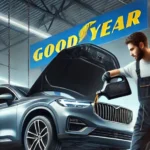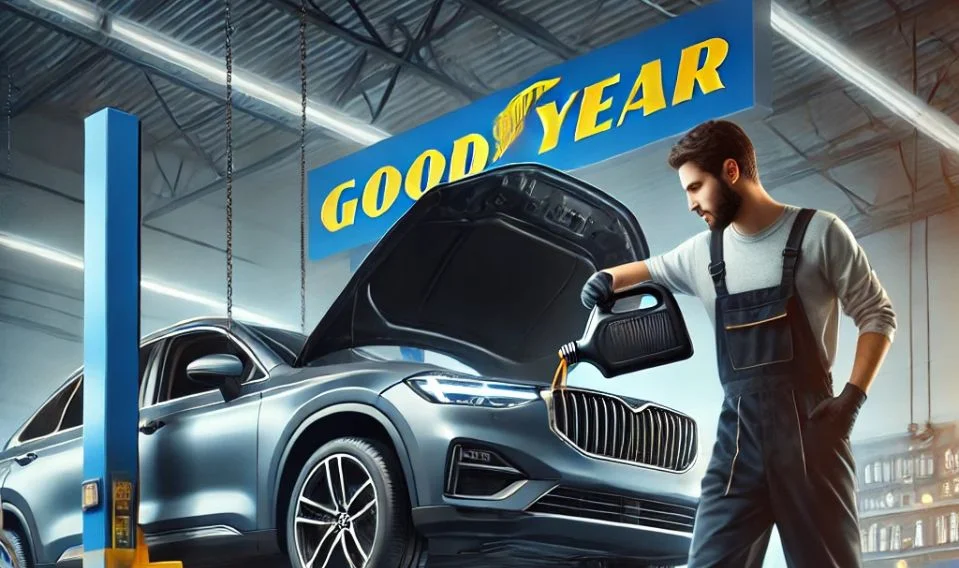With electric vehicles (EVs) well beyond 10% of new vehicle sales in the U.S. in 2023, EVs have moved beyond the confines of early adopter communities and flashy auto show displays, transforming into a mainstream reality. Today, a diverse array of EVs, from personal vehicles to commercial delivery trucks and vans, is visibly active on our roads. This shift is beginning to deliver on the significant reduction in the transportation sector’s greenhouse gas emissions and cut back on particulate matter that adversely affects the health of vulnerable groups in urban areas, such as children, the elderly, and those with chronic illnesses. Moreover, EVs offer simplified maintenance and technological innovations that will drive new industry growth and job creation.
This transition is powered by dynamic partnerships that aim to shorten the time to launch programs while providing substantial cost savings and shared risks among stakeholders.
For instance, Amazon has a five-year partnership agreement with Rivian, which aims to introduce 100,000 battery-electric delivery vans, of which 17,000 have already been deployed, for Amazon’s last-mile delivery needs. As noted in a report from the Detroit News, this alliance is pivotal in reinforcing Rivian’s status as an emerging EV leader, while pushing forward Amazon’s commitment to reliable delivery services and emissions-free transportation. Amazon has notably invested $1 billion and acquired a 17% stake in Rivian.
More recently, Amazon has extended this partnership approach to port operations. As reported by Reuters, this program includes the introduction of a dozen Volvo electric rigs to join eight electric semi-trucks already in use at the Los Angeles/Long Beach port complex, the nation’s busiest container seaport. All drayage trucks at the port must be zero-emissions by 2035, while Amazon itself has a goal of net-zero carbon emissions by 2040.
In addition, Forum Mobility recently announced that it is the charging solutions partner for the new ONE Electric Truck Program, developed by Ocean Network Express (North America) Inc., a global container transportation and shipping company. Initially, Forum Mobility will provide charging for the Class 8 Volvo VNR electric trucks at the FM Harbor charging depot close to the Port of Long Beach.
Last-mile delivery is an ideal scenario for EVs since the consistent mileage and fixed routes match EV battery range well and optimize the use of charging infrastructure. Besides Amazon, other major retailers and delivery firms like Walmart, UPS, and FedEx have committed to integrating substantial numbers of EV delivery vehicles into their fleets, aligning with their Zero Emission targets.
Fleet electrification strategies are most reliably and cost-effectively achieved by leveraging partnerships, from vehicle acquisition to infrastructure to long-term management and scaling.
Why EV Acquisition Partnerships Matter
Partnerships in EV strategy execution is essential. Fleet owners secure a reliable vehicle supply, and negotiate better terms and support, through bulk purchasing or direct investments, as demonstrated by Amazon or the USPS bulk purchase through Oshkosh. This arrangement provides important order visibility to backstop critical production volumes for vehicle OEMs and ensure platform continuity. The broader benefits include increased availability of new EV models, accelerated adoption and expansion of the number of fleet use cases to be served as battery power density improves, alongside the enhanced economic returns and logistical conditions for transitioning away from fossil fuels. Other key partners in the EV onboarding process include dealers and fleet management companies (FMCs).
These partnerships extend across the spectrum of EV ownership and operations, including crucial areas like EV charging, fleet management, and maintenance.
Evolving Partnerships in EV Charging
The evolving landscape of EV charging involves collaboration among different user groups, charging infrastructure providers, and electric utilities. Challenges include deciding between depot and on-route charging, scaling charging networks in line with fleet expansion, and synchronizing utility infrastructure to meet charging demands. One effective strategy has been the emergence of Charging-as-a-Service providers, who develop necessary charging infrastructure and guarantee capacity, pricing, and performance for fleet customers.
Coordination with utilities might involve energy-optimized, managed charging schedules that ensure fleet readiness and minimize electricity costs. Fleets could also contribute to grid stability by providing excess power capacity back to the grid at peak times. Notable projects include collaborations between charging providers and institutions like universities or corporate campuses to establish fixed-route EV shuttle services, alongside other innovative utility partnerships.
Long-Term EV Fleet Management
Furthermore, fleet operators are forming partnerships with companies that provide comprehensive fleet management and maintenance solutions, including software for telemetry and overall logistics—an evolution of existing models seen in the trucking industry. These partnerships are crucial for managing the transitional phase of mixed fleets comprising both internal combustion engine vehicles and EVs, which have varying demands for fuel, routing, maintenance, and repairs. These functions may be provided by Charging-as-a-Service solution companies, FMCs, dealers, or optimally by those groups teaming on areas of expertise.
In conclusion, this wide range of strategic partnerships are skillfully navigating the uncharted waters of EV integration, expediting the shift toward emission-free transportation. The resulting benefits include enhanced operational efficiency, cost reductions, technological progress, and a notably cleaner and healthier environment.
Kevin Kushman is CEO of Electrada a developer, owner and operator of electric vehicle charging infrastructure.











